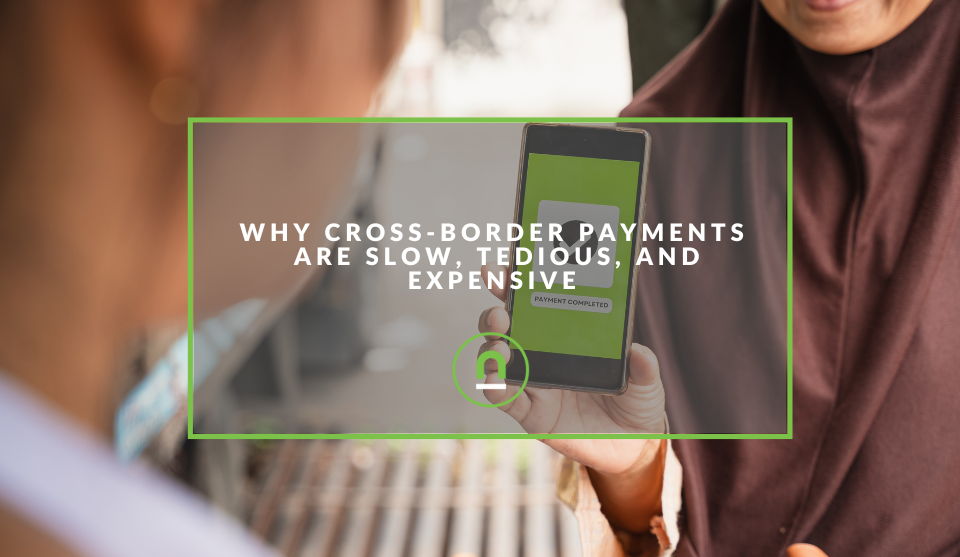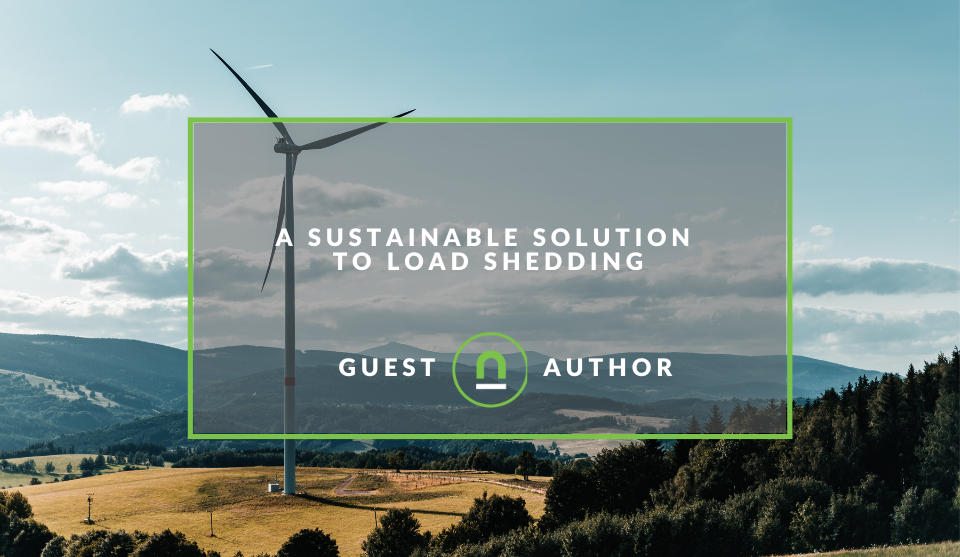Recent posts

nichemarket Advice
Why Video Production Companies Still Outshine AI
24 December 2025

Press Releases
Where You Can Find International Remote Jobs For South Africans
23 December 2025

Money Talks
Why Cross-Border Payments Are Slow, Tedious, and Expensive
17 December 2025

Money Talks
The Rise Of Trading Platforms In South Africa
16 December 2025
Popular posts
Extravaganza
Trending Music Hashtags To Get Your Posts Noticed
24 August 2018
Geek Chic
How To Fix iPhone/iPad Only Charging In Certain Positions
05 July 2020
Extravaganza
Trending Wedding Hashtags To Get Your Posts Noticed
18 September 2018
Money Talks
How To Find Coupons & Vouchers Online In South Africa
28 March 2019
A Sustainable Solution To Load Shedding
30 April 2023 | 1 comments | Posted by Joel Bijlmer in Constructive Criticism
Load shedding has become a common occurrence in South Africa in recent years, with power outages happening almost every day. It is no surprise that many South Africans feel frustrated and helpless, given that power outages affect everyone from small to large businesses, families, and individuals alike.
While businesses are being destroyed and unemployment continues to increase as access to energy holds back the countries' ability to produce value, the search for a solution continues.
The dire situation South Africa finds itself in is due to a combination of factors, corruption, poor planning, population growth, increased energy demand per individual and, of course, poor regulation. However, there is hope, and renewable energy presents a viable solution to the energy crisis facing the country.
Renewable energy sources, including wind, solar, hydro, and biomass energy, offer a sustainable and long-term solution to the current energy crisis facing the country.
Unlike fossil fuels, renewable energy sources are sustainable, long-lasting, and do not produce harmful emissions. Additionally, they offer an affordable and accessible solution to communities that are grappling with the costs of traditional power sources.
Solar energy
Solar energy has proven to be one of the most promising renewable energy sources in South Africa since the country receives high levels of sunlight throughout the year.
Solar panels convert sunlight into electricity, which can be used to power homes or businesses. While the initial cost of installation might be expensive, solar energy is an investment, and individuals can save money on energy costs over the long run.
Solar panels are great for individuals and businesses with roof space since they only cover an area that wasn't used in the first place and use it to provide additional power.
However, solar farming plants are limited in the amount of land they can cover and also require a cost-benefit analysis regarding the possibility of using that land for something else. While South Africa has many sunny days, balancing solar energy with demand and storage is another battle that makes it less effective as a commercial power source.
Solar also doesn't work at night, which also reduces its effectiveness.
That is not to say it shouldn't be part of the energy mix, it absolutely should be, but it is no silver bullet, nor will it ever be a substitute for base load capacity.
Wind energy
Another unsightly creation is the massive wind turbines that are used to source energy from the country's wealth of wind. Wind farms require a particular condition of regular wind to be effective, but there is a market for it, be it rather a niche.
Wind can also offer a scale; instead of only industrial wind farming, individuals can have smaller wind turbines on their property and use them to generate their own power.
Wind energy is a renewable energy source with significant potential in South Africa, given its strong wind flows. Wind turbines generate electricity by harnessing the wind's energy, which can be used to power homes and businesses.
Additionally, given that the country's coastlines stretch for 3 000 miles, offshore wind turbines could produce substantial amounts of electricity.
Hydropower
Hydropower is another energy source that has enormous potential in South Africa. With a variety of rivers and dams suitable for hydroelectricity installations, hydro energy provides a consistent source of power.
In addition to producing an environmentally friendly energy source, hydropower plants also have minimal carbon emissions and minimal waste production.
Biomass energy
Biomass energy is obtained from organic matter, including trees, crops, and organic waste, which can be used as fuel for generating electricity, liquid fuels, or heat. Biomass energy, if utilised efficiently and sustainably, can also provide an environmentally friendly and sustainable way of providing energy.
Conservation of energy
In addition to these renewable energy sources, energy-efficient methods in households and businesses can help reduce the reliance on traditional power sources. Installing energy-efficient light bulbs, using energy-efficient appliances, and unplugging electronics when not in use are some ways individuals can reduce energy consumption.
Covering the shortfall
While renewable energy sources are a long-term solution, the government has implemented short-term measures to address the current energy crisis. These measures include increasing the amount of electricity generated by Eskom's gas turbines, which produce electricity that is available on demand. Additionally, Eskom is exploring options like pump-storage hydro technology and diesel-fired power generation that could be used when needed.
Decentralising energy production
Renewable energy sources are a viable and sustainable solution to the energy crisis in South Africa as we seek to decentralise energy generation and take advantage of a healthy mix of energy. Renewables offer a clean and affordable energy solution that reduces the country's dependence on traditional power sources and helps protect the environment.
Using energy-efficient methods in the household or business is also an excellent way to reduce energy consumption and improve sustainability. The government's implementation of short-term measures also ensures that the country remains connected to power grids and has access to energy when it is needed.
Renewables also offer the individual consumer the chance to be independent of the grid, which more South Africans are opting for as they look for ways to avoid reliance on the state monopoly.
Keeping up with load shedding
While energy generation plans are great to talk about, costing and rolling them out is another story, and we will be stuck with power cuts for years to come. If you're not in a position to go off the grid or have a hybrid solution to avoid dealing with load shedding, you will need to keep up with the schedule and plan around it.
Loadshedding.com is committed to providing you with the latest Load Shedding Schedule, news, and updates. Our website is designed with our users in mind, ensuring that we keep communities informed and updated on any Load Shedding news. From Load Shedding Schedules to energy-saving tips, we bring you real-time and relevant information to ensure that you stay informed.
Tell us your story
Would you like to write for nichemarket just like Joel has? Find out how to submit a guest post, and when you're ready, you can contact us.
Contact us
If you would like us to help set up your marketing or want to know more about digital marketing for your business, then don’t be shy we’re happy to assist. Simply contact us
Are you looking to promote your business?
South African Business owners can create your free business listing on nichemarket. The more information you provide about your business, the easier it will be for your customers to find you online. Registering with nichemarket is easy; all you will need to do is head over to our sign up form and follow the instructions.
If you require a more detailed guide on how to create your profile or your listing, then we highly recommend you check out the following articles.
Recommended reading
If you enjoyed this post and have a little extra time to dive deeper down the rabbit hole, why not check out the following posts on small business
- How To Register A Small Business In South Africa
- How To Promote My Business For Free In South Africa
- Small Businesses That Can Go Digital During The Lockdown
- 14 Ways To Leverage Facebook As A Small Business
- How South Africans Can Kickstart Their Side Hustle
- How To Find A Suitable Buyer For My Business
- Create A Free Website For Your South African Business
Tags: Load Shedding, Eskom, Guest Post
You might also like
Why Video Production Companies Still Outshine AI
24 December 2025
Posted by Che Kohler in nichemarket Advice
A review of traditional video production versus generative AI videos and why businesses might be tempted to go the cheaper route, but it might cost y...
Read moreThe Rise Of Trading Platforms In South Africa
16 December 2025
Posted by Gabriela Pelayes in Money Talks
Discover how the rise of digital trading platforms in South Africa is reshaping commodity markets, boosting accessibility, efficiency, and the future...
Read more{{comment.sUserName}}
{{comment.iDayLastEdit}} day ago
{{comment.iDayLastEdit}} days ago
 {{blogcategory.sCategoryName}}
{{blogcategory.sCategoryName}}
